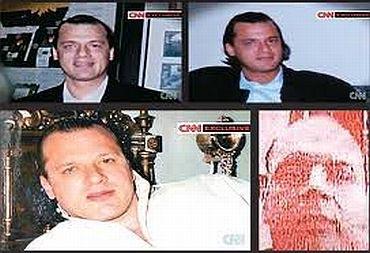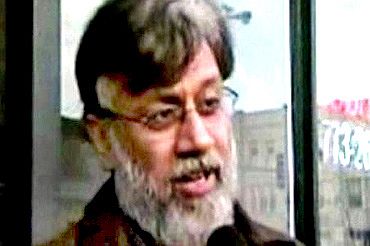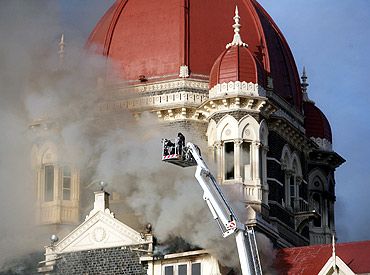
Backed by a court order, India is expected seek extradition of Lashkar-e-Tayyiba operative David Coleman Headley and his accomplice Tahawwur Rana from the United States. But this is going to be an uphill task for investigators, reports Vicky Nanjappa.
Armed with a special court order, India will soon write to the United States seeking extradition of Pakistani-American terrorist David Coleman Headley and his accomplice Tahawwur Rana in connection with their role in the 26/11 attacks in Mumbai. But can Headley really be extradited or is India simply going through this process as a formality?
If sources are to be believed Headley's extradition is next to impossible under the given scenario. It's been said time and over again that the trial against Headley at least would be conducted in absentia. Headley had entered into a plea bargain with the US authorities and got immunity from being extradited to India, Pakistan or Denmark. While this is one of the arrangements the Lashkar-e-Tayiba operative has entered into with the US, there is also another aspect.
When Headley's role in the Mumbai attacks became clear, India security agencies were desperate to lay their hands on him. After much deliberations and waiting the National Investigation Agency got a go ahead to interrogate him.
...
For Rediff Realtime News click here

According to US laws, the accused is given the option of refusing to speak with an investigation agency, which is not based in the country. Hence, the NIA had a tough time getting access to him, as it was mandatory that Headley was convinced to talk to them. It was only after he agreed that the Indian investigators were allowed to question him. But that to came with a condition. He agreed to talk to the NIA officials only if there was no insistence of his extradition.
The case of Rana is no different. Although he is wanted for an offence committed on the India soil, it is in the US that he is being tried. Before seeking an extradition, India would first need to question him. Moreover, he cannot be extradited till the trial against him in the US court is completed. Again, the NIA can interrogate Rana only if he agrees.
However, there is one option that India has to seek their extradition. Headley has been charged under 12 counts in the US and he has entered into a plea bargain for these cases. What Indian investigators need to do is seek his extradition on other counts for which an arrangement has not been sought.

Another option that is available is to point out that when the plea bargain was entered into India was not involved in the case despite the fact that Headley was accused for an offence committed in Mumbai.
An extradition appears to be farfetched at the moment. It is highly unlikely that even the US may agree to an extradition considering the assurance that was given to Headley at the time of the plea bargain.
India will need to really push this issue legally as Headley does enjoy immunity in terms of extradition. Moreover, it is very likely that Headley would consider a legal option in case of any extradition offer made by the US to India, say sources.
What does the NIA do now in such an event? There is an option to fight the legal battle against Headley where he would not be present -- the procedure known as in-absentia. His statements to the NIA can be used during the proceedings. India would also have to consider whether the proceedings from a foreign court could be used in an Indian court. Although there is no bar on doing so, it would still have to be examined because the accused cannot be extradited.
However when the trial begins, the Indian law mandates that the accused be given an opportunity to defend the charges against him. This is mandatory under the Code of Criminal Procedure. In such an event, the trial may have to be conducted through video conferencing, legal experts say.